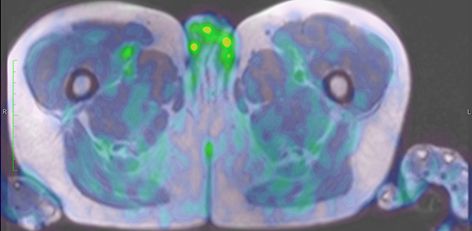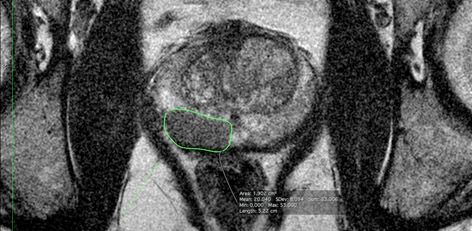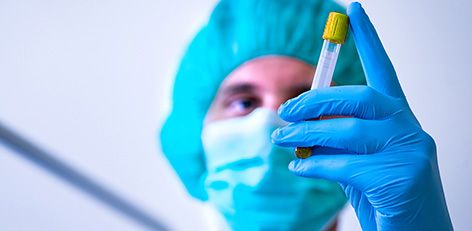 What does the prostate biopsy involve?
What does the prostate biopsy involve?
Prostate biopsy is a test in which small sections are collected from the prostate gland. Collected sections are then examined by a pathomorphologist under a microscope, often using various immunochemical staining.
What is the purpose of the prostate biopsy?
The prostate biopsy is a test used to diagnose prostate cancer.
What happens during the examination?
During a standard transrectal biopsy, an ultrasound probe is inserted into a rectum, enabling an urologist to examine the prostate structure. A needle is inserted through a biopsy port within the probe, and material from various parts of the prostate is collected for histopathological examination; usually at least 12 sections are collected.
During the biopsy, the patient is under local anaesthesia. The procedure is normally performed at a treatment room and takes no more than 20 minutes. Sometimes, the prostate biopsy can also be performed at an operating theatre. When a man has an increased sensitivity to pain, it is also possible to use intravenous anaesthesia.
In some cases the prostate biopsy is performed transperineally, under general anaesthesia. This method provides significantly larger number of sections from all areas of the prostate, even from those areas that are difficult to access during the transrectal biopsy. The number of sections collected with this method, depending on indications and the prostate volume, ranges from 20 to 45. A biopsy during which a large number of specimens is collected is called a saturation biopsy.
The biopsy results can be collected after ca. 2 to 3 weeks; the patient should show this document to an urologist for interpretation and determining further procedure.
Who should have a prostate biopsy?
- The prostate biopsy is intended for people with:
- suspected prostate cancer due to elevated PSA levels;
- 4Kscore test results indicate suspected clinically significant prostate cancer;
- PCA3 test gave a positive result;
- anomalies were found in a per rectum examination;
- previous biopsy had a normal histopathological result, yet the PSA or PCA3 levels remain elevated;
Before planned prostate biopsy inform the urologist about:
- any disorders related to blood coagulation;
- use of medicines affecting blood coagulation;
- any allergies to medicines;
- pacemaker or artificial heart valves implanted.
How is the prostate biopsy performed?
The prostate biopsy requires correct preparing of the patient.
When the appointment is arranged, anticoagulants should be discontinued, in consultation with Patient's cardiologist or internal medicine specialists.
Anticoagulants and the number of days for which they should be discontinued:
- Acard, Aspirin, Polocard, Polopiryna, Sintrom 7 days before planned biopsy;
- Aclotin, Ticlo, Plavix, Xarelto 5 days before planned biopsy
The urologist will prescribe an antibiotic to be taken two days before the planned biopsy (it should also be taken in the morning of the day of the biopsy).
On a day of the examination eat normally (you do not have to be fasting), and this is of particular importance for people with diabetes.
You should come to the examination possibly with your bowels empty (emptying of the large intestine).
Patients are asked to bring results of previous tests (laboratory and imaging examinations).
Important:
For several days after the biopsy you may notice blood or clots in your urine, semen and stool. When this bleeding is very copious, you should see a doctor. If you have a fever exceeding 38ºC, you should see a doctor.
How can I arrange a prostate biopsy?
Please contact us for consultation and confirming the need for the test, using the free online consultation. We will gladly analyse your medical history and answer all your questions.
To arrange the treatment, please contact the Patient coordination department at: + 48 606 994 372 or by email: contact@hifuclinic.eu
See also

POSITRON EMISSION TOMOGRAPHY WITH PSMA LABELLING (68GA-PSMA-PET/MRI)
PET test (positron emission tomography) allows to visualise various metabolic conditions...

MRI/TRUS fusion guided targeted prostate biopsy
This procedure is performed in patients with increased PSA levels and when any anomalies are found...

